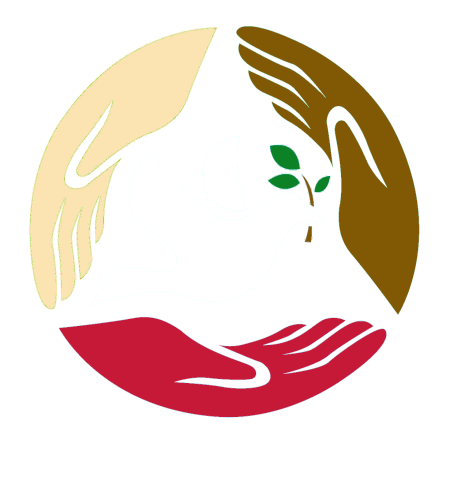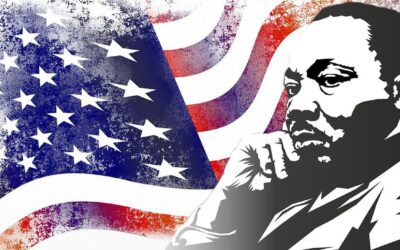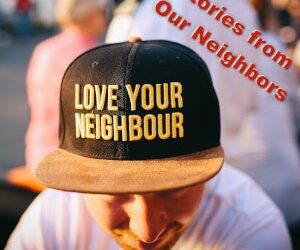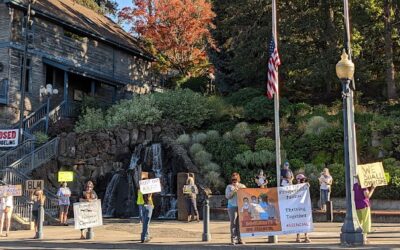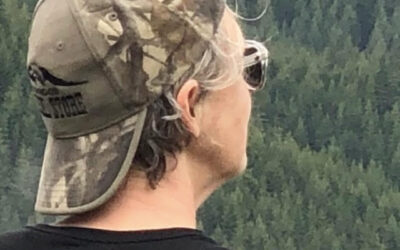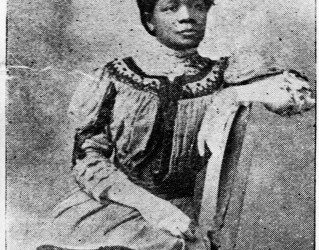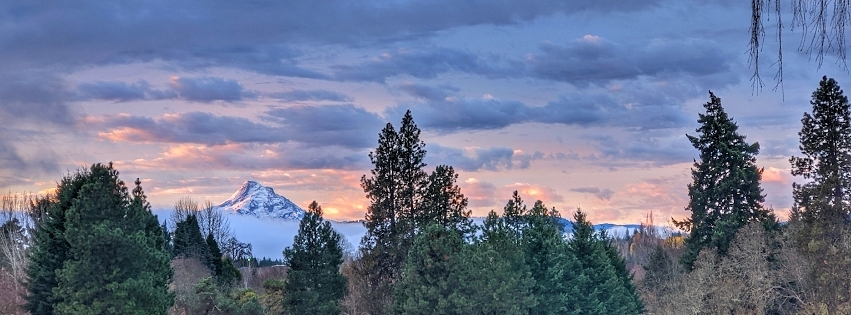
Andy Wade –
Hello, my name is Andy Wade, and I’m addicted to racism
What if we began our responses as White Americans with this statement? Listening to Ibram X. Kendi’s Ted Talk where he talks about racism as an addiction challenged me to go deeper with this idea. What if my starting point wasn’t knee-jerk self-justifications and denial, but rather humility and honesty? At best, I could say, “Hello, my name is Andy Wade and I’m a recovering racist.”
So, here are a couple of truths I know about myself.
- I refuse to embrace my racism, but I will own it.
- While I try hard to be anti-racist, I also know that I have racist thoughts and, occasionally, racist actions.
- Almost every advantage I have (perhaps, every) comes through the system of racism that set me up to succeed and continues to assure my success.
- Every time I insist I’m not racist or deny that have been significantly advantaged by racist systems, I deny the lived experiences of BIPOC (Black, Indigenous, and other POC) communities – that, in itself, is racist.
- Similarly, if I deny that racism continues today, that systemic injustice has saturated our laws, policies, and thinking, or insist that all people have the same rights and potential (“if they just apply themselves”), I’m perpetuating a racist lie and attempting to silence the voices of those whose experiences are different from my own (that’s racism).
- When I trot out one black woman, or “my black friend” who agrees with my perspective in order to “prove” my argument, I’m participating in confirmation bias and denying the majority voices who tell a different story. (You also might ask yourself if you’re friendship with that person is built more on that confirmation bias and its guilt-relieving power, or true friendship).
So let me share part of my background story. My Grandpa Wade had an eighth-grade education, went on to sell life insurance, and eventually had his own insurance business. My dad worked from the time he was very young, selling newspapers, herding sheep, and other jobs. My dad worked hard to get into college and was the first male in his family to get a higher education. He lived and worked in the boiler room to pay for his schooling. He went on to med school, getting a Navy scholarship to help pay the costs. He worked hard. He made sacrifices. And, in a sense, “pulled himself up by his bootstraps. (this story is told with his permission)
I am proud of my dad and all that he accomplished. But, even though he came from a poor family, he was not denied opportunities because of the color of his skin. His experiences made him an open, compassionate, inclusive doctor. He learned Spanish because at that time in Hood River, OR, there was no clinic for Spanish-speaking residents and migrant workers. And he’s maintained many of those friendships over the years. I am proud of all his accomplishments and of the person he is.
But, even with all his hard work, determination, and perseverance, he was advantaged by the color of his skin and systems that created more room for his whiteness than for his BIPOC neighbors. In fact, I would venture to guess that even having the idea that he could go to college and could become a doctor has its roots in the fact that he is white.
Many BIPOC even today don’t even consider college a possibility. They have been so beaten down by the system, told over and over again that they’re “stupid”, “disruptive”, “won’t amount to anything”, “need to not be so uppity”, and so on, that the idea doesn’t even enter their minds. That’s racism. And that’s a kind of racism that actually creates even more of an advantage for white folks because it eliminates competition for those college seats even before the competition begins.
So here I am. I grew up comfortable. My parents gave me all the advantages they could – that’s what a loving parent does, and my parents were and are generous and loving parents. I didn’t have to work during college. And there’s more.
Have you heard the phrase when job hunting, “It’s not what you know, but who you know.” Have you ever considered how systemic racism builds on that truth to keep BIPOC out of good jobs? Almost every job I’ve had since college (nearly 40 years ago) I got because I personally knew someone in the company or organization. I was connected to people in power. And still, the vast majority of people with hiring power are white men.
Affirmative Action programs seem unfair because they directly confront my privilege. I’ll complain, “Jobs should be based on performance and what you know, not the color of your skin or your sex!” And yet, “normal hiring practices” still tend to be more about who you know which, more often than not, is tied to the color of your skin.
Similarly, we tend to “connect” with those who are most like us. We see this in group affiliations and churches. In fact, much of the church-growth movement of the 90s was built precisely on this principle. How can I “gain access” to those people in power if our world continues to be so segregated? This is a kind of white advantage we often don’t even consider – but I’ll bet my BIPOC friends have!
I’m a community organizer and activist. I’ve been out of work for nearly a year now, but volunteering full-time. This has been a choice. Before that, I was an interim ½-time pastor that also allowed me time for my volunteer efforts. My ability to do this springs directly from my advantage. I have a savings account. I have a safety net of family so I don’t fear ending up on the streets. It makes for tight budgets, but my wife and I can make it work. My ability to serve others in the way that I do comes from the deep pockets of my own white advantage.
There is so much more I could say. I try to work hard to be anti-racist. I try to use my advantage to help those that have been purposefully disadvantaged. I don’t do this out of guilt, but out of a genuine desire to build compassion and justice in our world.
I want to be vulnerable about my journey toward anti-racism and anti-sexism. I’m going to stumble along the way. I’m going to make racist and sexist statements and do racist and sexist actions. I’ve had a lifetime of indoctrination and advantage – that’s not all going to end because I wrote a letter or joined a rally. This is a long-haul journey.
As the famous Chinese philosopher, Lau Tsu, once said, “A journey of a thousand miles begins with a single step.” For this journey to be true, honest, and enduring I must begin by admitting:
“My name is Andy Wade and I am still addicted to racism.”
Justice Resources
Books, Articles, Documentaries, Movies, TV Shows
Check out our recommended racial and social justice resources
More From the Justice Blog
MLK Day Workshops
Rev. Dr. Martin Luther King Jr Day - 2021 Sponsored by Somos Uno and Gorge Ecumenical Ministries Keynote: Dr. Angela Davis Link to the recording...
A Yakima Tribal Member’s Story
Stories From Our Neighbors is a new GEM series designed to help us hear, first-hand, from lives of those who “live next door”. Listen to the stories and help us build “The Beloved Community” envisioned by the Rev. Dr. Martin Luther King, Jr.
An Immigrant’s Story
Stories From Our Neighbors is a new GEM series designed to help us hear, first-hand, from lives of those who “live next door”. Listen to the stories and help us build “The Beloved Community” envisioned by the Rev. Dr. Martin Luther King, Jr.
Maria’s Story
Stories From Our Neighbors is a new GEM series designed to help us hear, first-hand, from lives of those who “live next door”. Listen to the stories and help us build “The Beloved Community” envisioned by the Rev. Dr. Martin Luther King, Jr.
Disturbed, Destabilized, but Determined
Andy Wade - I am disturbed by what I’m seeing and hearing. I’m disturbed not only by what I’m seeing and hearing but by what's revealed about myself...
This… Must… Change…
Molly Davis -- There is this logging road we hike once or twice a week. Over the course of 1.7 miles we gain 1000’ in elevation while hiking through...
We Know Better Now
Andy Wade - We know better now. Don’t we?' Way back then in times of “savages” and slaves, perhaps they didn’t know better. Still, as ones formed in...
Black Suffragists
Frances Ellen Watkins Harper In the nineteenth century, Frances Ellen Watkins Harper was an influential abolitionist, suffragist, and reformer who...
Maybe
John Combs July 10 Maybe The poverty of my privilege has robbed me Of experiences and beauty that should beguile me. Blinded by my history’s...
The Importance of Learning, with Ann Harris
Ann Harris - Since 2016, something has really changed for me in the way that I feel when I am out in public spaces or traveling around the state or...
